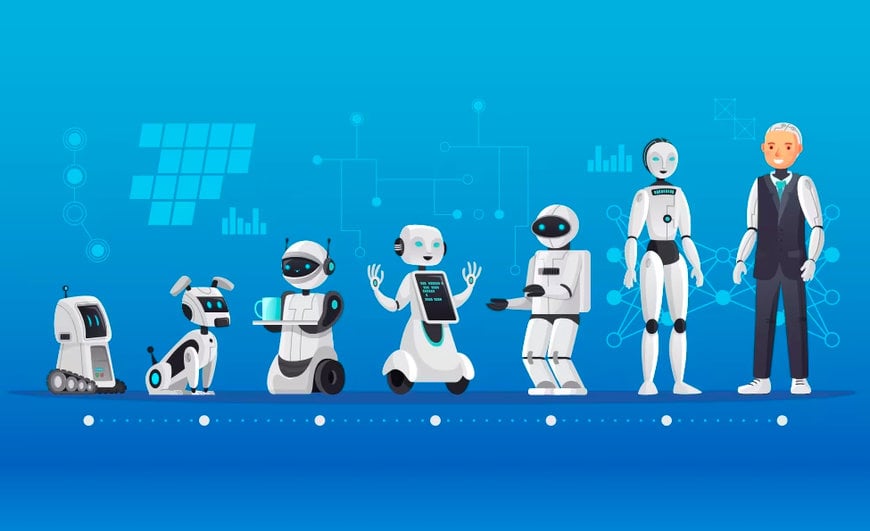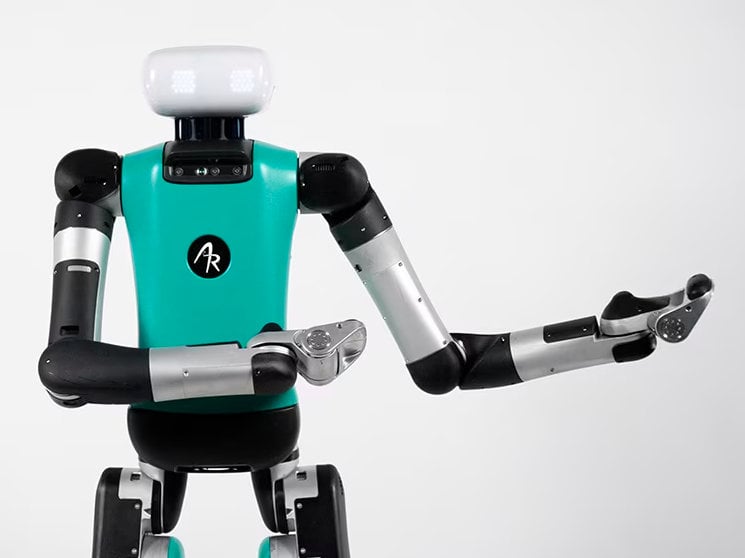www.magazine-industry-usa.com
04
'23
Written on Modified on
TDK AIDS HUMAN-CENTRIC ROBOTS WHICH CAN DRAMATICALLY TRANSFORM THE FOREFRONTS OF LABOUR
Today, a new class of robots is in the spotlight: human-centric, bipedal walking robots designed to work collaboratively around humans in the same environments built around humans.

Our society is on the cusp of a profound transformation brought about by advances in robotic technologies. Industrial robots have long been a familiar sight in manufacturing and logistics, helping improve productivity and alleviate labour shortages.
The potential of collaborative robots that work alongside humans
Industrial robots supplement labour across a wide range of fields, including factories, warehouses, and hospitality. Gathering newfound attention are collaborative robots—or cobots—that work alongside humans in the same environment. In recent years, collaborative robots have been introduced into a variety of workplaces as a countermeasure to labour shortages, to maintain productivity and fight against infectious diseases. According to the research by Yano Research Institute, the global collaborative robot market is expected to expand from 149.7 billion yen in 2021 to 1.053 trillion yen by 2032. Robots hold the potential to transform the labour environment in the future significantly.
The most advanced collaborative robots tend to be humanoids, which are shaped like humans. Because they can be used in the same space as humans, they require no new facilities to be built around them and can easily be deployed in existing labour environments. They are conducive to working together with humans since they can move at the same speeds as humans and can pass objects between humans. However, bipedal walking robots are inherently less stable than their wheeled relatives and prone to tipping over, requiring sophisticated sensing and motion control. Also, because their movement is less energy-efficient, improvements in battery performance are essential for extended operation.
TDK Ventures, the corporate venture capital arm of TDK Corporation, has invested in Agility Robotics—a U.S. startup developing Digit, a family of next-generation human-centric robots well-positioned to address the aforementioned challenges.
Digit—a cutting-edge bipedal robot
Founded in California in 2015, Agility Robotics rose to prominence in 2018 with the launch of Digit, a bipedal walking robot it calls human-centric. In March 2023, it followed up with the unveiling of the second-generation Digit, which supports much higher performance and capabilities. Digit is human-sized at a height of 175 cm, capable of climbing stairs and handling rugged terrain. Equipped with the latest sensor technologies like LiDAR, cameras, and AI algorithms, Digit has awareness of its surroundings, enabling multiple of them to operate autonomously as a fleet in the same location. This minimizes the workload of assigning tasks and giving direction on the part of humans managing the robots. Digit features a pair of arms and hands optimized to hold objects, capable of carrying loads of up to 16 kg. Additionally, a programmable interface facilitates the customization of movements and the modification of tasks.
Collaboration with TDK
Digit robots are currently utilized in warehouses and distribution centres to move goods, store them on shelves, etc. The future vision is to have them load/unload trucks and deliver packages to doorsteps in lieu of human personnel. They are also expected to play a key role in the “last mile” of delivery operations in combination with autonomous truck driving technologies.
TDK saw potential in the safe, versatile robotic technologies developed by Agility Robotics and decided to invest in them through TDK Ventures in 2020. Jonathan Hurst, co-founder and Chief Robot Officer of Agility Robotics, had the following to say about the technological collaboration with TDK. “As an early partner, TDK has played a critical role in Agility’s growth. We are fortunate to have an investor who understands the robotics industry and is also developing technologies to help propel it forward. Human-centric robots, which are mobile in human environments, need the latest in sensors, actuators and batteries. As we seek components that support the next wave of robots, we highly value the expertise available to us from the TDK Group.”
While Digit is already loaded with some of the world’s most advanced robotic technologies, Hurst pointed to future challenges and prospects. “We still face many technical hurdles that must be overcome before Digit can work in even more diverse environments. To that end, we have developed several new features: a self-charging dock onto which Digit will latch autonomously, improved grippers that will better handle plastic bins and cardboard boxes, and a head that communicates to nearby people what the robot is about to do.”
As human-centric robots evolve further, we can expect to see humans and robots coexist increasingly in the forefronts of labour. With its myriad of sensors and compact, high-capacity battery technologies, TDK is buttressing the continual evolution of robots. As collaborative robots grow in sophistication and capabilities, they will help improve productivity, labour shortages, and other social issues. And ultimately, the liberation of humans from difficult and dangerous tasks will enable us to work in more creative, human-like ways.

Digit, a bipedal walking robot developed by Agility Robotics, can carry large loads with stability in the same environment as humans.
Established in 2019, TDK Ventures invests in startups around the world that are propelling DX (Digital Transformation) and EX (Energy Transformation), including robotics, next-generation materials, mobility, health tech, industrial, and other segments. For more information on TDK Ventures’ activities and portfolio companies, please visit the TDK Ventures website.
www.tdk.com

